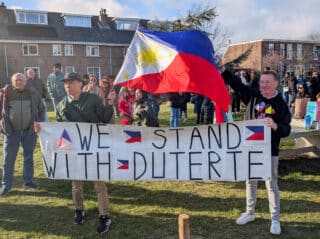Manila Water Company Inc. cites its business model that goes beyond financial gains as a factor for its inclusion in the 20 Global Growth Companies (GGCs) in the region named during the World Economic Forum (WEF) on East Asia.
“I believe that Manila Water’s success can be attributed to our drive and dynamism, as we operate water and wastewater systems in a mega-city of a developing country, with large marginalized sectors under extremely challenging social-political and regulatory environments,” company president Gerardo C. Ablaza Jr. said in accepting the citation.
“We remain steadfast in being guided by our triple bottomline approach which balances financial viability with social responsibility and environmental sustainability,” he added.
The WEF describes the GCCs as the most dynamic, high-growth companies from around the world and are the trailblazers, shapers and innovators that are committed to improving the state of the world.
The WEF has so far named 360 GGCs from at least 65 countries, each company having “the potential to become a leader in the global economy owing to their business models, growth records, leadership and the markets they serve.”
Manila Water is only the second Philippine company to join the list, alongside Aboitiz Power Corp.
According to WEF managing director David Aikman, the forum assesses companies on their business model, annual revenues and growth rates, executive leadership and market position when choosing entrants to its roster of GGCs.
“Manila Water is a dynamic company with clear potential to shape the future in its relevant business sectors and so is a perfect fit to our GGC community,” Aikman said.
In this batch of GGCs, Manila Water is in league with one company each from Cambodia, Indonesia and Singapore; six from Japan; two from Myanmar; three from South Korea and five from Vietnam.
According to the WEF, a GGC member is provided opportunity for its executives to connect “meaningfully” with their counterparts from other organizations as well as leaders from government, civil society and academia.



